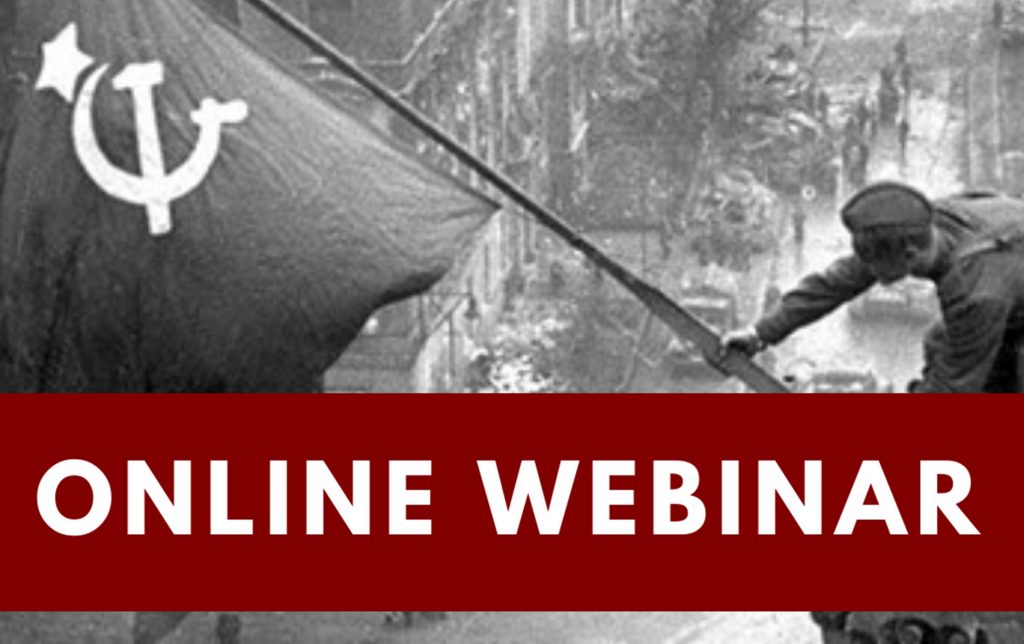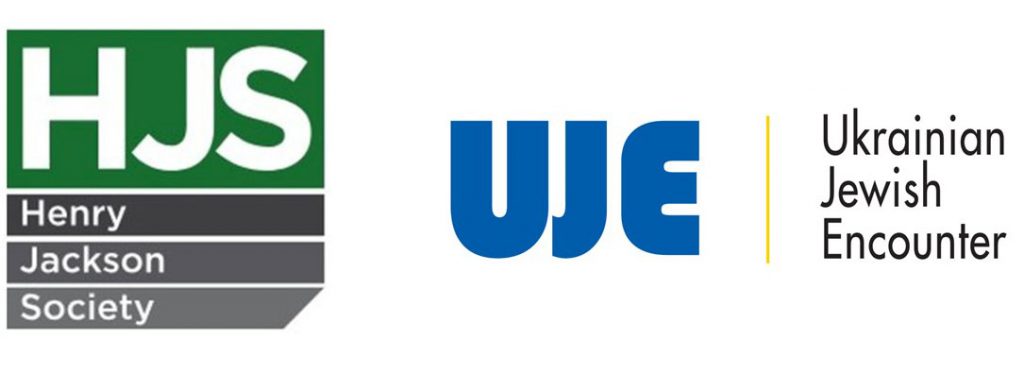“Don’t mention the war”: does Europe need a shared historical narrative of WWII?
As Europe is to mark the 75th anniversary of the end of WWII, national narratives of those historic events hugely differ across Europe. Identity and historical memory are often hijacked by populist and nationalist agendas and history suddenly enters the political mainstream. In Brexit Britain, spurious references were made to get rid of “German” control. In Putin’s Russia, the “Great Patriotic War” has been made a centrepiece of contemporary Russian identity, justifying aggression against its neighbours as a crusade against “Ukrainian fascists.” Many countries remain confined to their respective WWII narratives, often downplaying collaboration and overplaying their nation’s heroism. On the other hand, many people in the West are oblivious to the extent of bloodshed experienced by Eastern European countries (namely Poland, Ukraine, Belarus) in the fight against Nazism. The lack of a shared vision of lessons from WWII hampers understanding of the Holocaust and the industrial scale that it took in the lands squeezed between Hitler and Stalin.
The Ukrainian Institute London and Henry Jackson Society are proud to present an outstanding panel of speakers to discuss these issues:
Serhii Plokhy, historian, author, Director of the Harvard Ukrainian Research Institute, US
Krzystof Czyżewski, writer, philosopher, President of Borderland Foundation, Poland
Brendan Simms, historian, author, Cambridge University, UK
Moderator: Adrian Karatnycky, Senior Fellow and Co-Director of the Ukraine in Europe Program, Atlantic Council, US
The discussion will be preceded by a short presentation of a bespoke research project about key historical narratives of the 20th century across leading media of six European countries (Poland, Russia, Ukraine, France, Germany, UK) over 2018-2019. The research was organized and funded by the Ukrainian Institute (Kyiv) and One Philosophy Group of Companies. The research uncovered divergence or omittance in interpreting key events of that century, relating to WWII (such as perceptions of Russia’s contribution to the defeat of Nazism and interpretations of Molotov-Ribbentrop Pact). The research findings will be unveiled by Nataliia Popovych (founder, One Philosophy; co-founder, Ukraine Crisis Media Centre).
The event is free, but your voluntary donation of £5 would be gratefully received. Donate here. To take part in the event, please register at the Zoom link.
Speakers' bios:
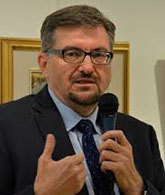 Serhii Plokhy is the Mykhailo Hrushevsky Professor of Ukrainian History at Harvard University. A leading authority on Eastern Europe, who has published extensively in English, Ukrainian and Russian, he has lived and taught in Ukraine, Canada and the United States. His recent books include The Gates of Europe: A History of Ukraine (2015), The Last Empire: The Final Days of the Soviet Union (2015), The Cossack Myth: History and Nationhood in the Age of Empires (2012) and Yalta: The Price of Peace Viking/Penguin (2010; 2011). He is a board member of the Ukrainian Jewish Encounter.
Serhii Plokhy is the Mykhailo Hrushevsky Professor of Ukrainian History at Harvard University. A leading authority on Eastern Europe, who has published extensively in English, Ukrainian and Russian, he has lived and taught in Ukraine, Canada and the United States. His recent books include The Gates of Europe: A History of Ukraine (2015), The Last Empire: The Final Days of the Soviet Union (2015), The Cossack Myth: History and Nationhood in the Age of Empires (2012) and Yalta: The Price of Peace Viking/Penguin (2010; 2011). He is a board member of the Ukrainian Jewish Encounter.
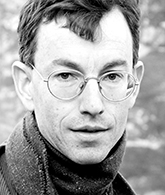 Brendan Simms is Professor in the History of International Relations at the University of Cambridge, Director of the Forum on Geopolitics at the University of Cambridge, and President of the Henry Jackson Society. He is the author of ‘Europe. The Struggle for Supremacy, 1453 to the Present’ (London, 2013), ‘Britain’s Europe. A Thousand Years of Conflict and Cooperation’ (London, 2016), and ‘Hitler. Only the World Was Enough‘ (London, 2019).
Brendan Simms is Professor in the History of International Relations at the University of Cambridge, Director of the Forum on Geopolitics at the University of Cambridge, and President of the Henry Jackson Society. He is the author of ‘Europe. The Struggle for Supremacy, 1453 to the Present’ (London, 2013), ‘Britain’s Europe. A Thousand Years of Conflict and Cooperation’ (London, 2016), and ‘Hitler. Only the World Was Enough‘ (London, 2019).
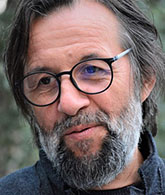 Krzystof Czyżewski is a practitioner of ideas, writer, philosopher, culture animator, theatre director, editor. Co-founder and president of the Borderland Foundation (1990) and director of the Centre “Borderland of Arts, Cultures and Nations” in Sejny. Together with his team, in Krasnogruda on the Polish-Lithuanian border he revitalized a manor house once belonged to the Czesław Miłosz family, and initiated there an International Center for Dialog (2011). Among his books are: The Path of the Borderland (2001), Line of Return (2008), Trust & Identity: A Handbook of Dialog (2011), Miłosz – Dialog – Borderland (2013), Miłosz. A Connective Tissue (2014), The Krasnogruda Bridge. A Bridge-Builder’s Toolkit (2016), A Small Center of the World. Notes of the Practitioner of Ides (2017, Tischner Award for the best essayist book of the year), Żegaryszki (2018, haiku poems), and Towar Xenopolis (2019). Teacher and lecturer, a visiting professor of Rutgers University and University of Bologna. He received a title of the Ambassador of European Year of Intercultural Dialog (Brussels). He is a laureate of Dan David Prize 2014 and Irena Sendlerowa Prize 2015. Together with the Borderland team he is the 2018 Princess Margriet European Award for Culture (Amsterdam) laureate.
Krzystof Czyżewski is a practitioner of ideas, writer, philosopher, culture animator, theatre director, editor. Co-founder and president of the Borderland Foundation (1990) and director of the Centre “Borderland of Arts, Cultures and Nations” in Sejny. Together with his team, in Krasnogruda on the Polish-Lithuanian border he revitalized a manor house once belonged to the Czesław Miłosz family, and initiated there an International Center for Dialog (2011). Among his books are: The Path of the Borderland (2001), Line of Return (2008), Trust & Identity: A Handbook of Dialog (2011), Miłosz – Dialog – Borderland (2013), Miłosz. A Connective Tissue (2014), The Krasnogruda Bridge. A Bridge-Builder’s Toolkit (2016), A Small Center of the World. Notes of the Practitioner of Ides (2017, Tischner Award for the best essayist book of the year), Żegaryszki (2018, haiku poems), and Towar Xenopolis (2019). Teacher and lecturer, a visiting professor of Rutgers University and University of Bologna. He received a title of the Ambassador of European Year of Intercultural Dialog (Brussels). He is a laureate of Dan David Prize 2014 and Irena Sendlerowa Prize 2015. Together with the Borderland team he is the 2018 Princess Margriet European Award for Culture (Amsterdam) laureate.
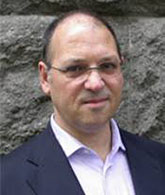 Adrian Karatnycky is a member of the Board of Directors of the Ukrainian Jewish Encounter. He is a Senior Fellow at the Atlantic Council in the United States and director of its Ukraine-North America Dialogue. From 1993 until 2003, he was President of Freedom House, during which time he developed programs of assistance to democratic and human rights movements in Belarus, Serbia, Russia, and Ukraine and devised a range of long-term comparative analytic surveys of democracy and political reform. For twelve years he directed the benchmark survey Freedom in the World and was co-editor of the annual Nations in Transit study of reform in the post-Communist world. He is a frequent contributor to Foreign Affairs, Newsweek, the Washington Post, the Wall Street Journal, the Financial Times, the International Herald Tribune, and many other periodicals. He is the co-author of three books on Soviet and post-Soviet themes.
Adrian Karatnycky is a member of the Board of Directors of the Ukrainian Jewish Encounter. He is a Senior Fellow at the Atlantic Council in the United States and director of its Ukraine-North America Dialogue. From 1993 until 2003, he was President of Freedom House, during which time he developed programs of assistance to democratic and human rights movements in Belarus, Serbia, Russia, and Ukraine and devised a range of long-term comparative analytic surveys of democracy and political reform. For twelve years he directed the benchmark survey Freedom in the World and was co-editor of the annual Nations in Transit study of reform in the post-Communist world. He is a frequent contributor to Foreign Affairs, Newsweek, the Washington Post, the Wall Street Journal, the Financial Times, the International Herald Tribune, and many other periodicals. He is the co-author of three books on Soviet and post-Soviet themes.
 Nataliia Popovych is an entrepreneur, international communications expert and civic activist. She is the Co-Founder of Ukraine Crisis Media Center (UCMC), Head of the International Programming Board, Centre Anne de Kyiv and Founder of One Philosophy – a multidisciplinary group of companies. Nataliia specializes in consulting organizations on reputation strategy, brand development, executive coaching, crisis management and strategic communications. After the Revolution of Dignity, Nataliya has been at the forefront of Ukraine’s efforts to counter Russian hybrid warfare and together with a number of communications and international relations professionals she has cofounded the Ukraine Crisis Media Center. In 2014-2016 Nataliia served in the capacity of an advisor on information policy to the Chief of the President’s Administration of. In 2017-2018, Nataliia helped launch two new units of UCMC - the Hybrid Warfare Analytical Group (HWAG) and UChoose.info. With HWAG Natalia counsels Ukraine’s international partners across the globe on the threats and disinformation campaigns stemming from the Russian Federation against the EU, NATO, Western democratic governments and societies. Via supporting UChoose.info Nataliia ensures civil society’s contribution to fighting populism and advocating for the critical thinking, ethical agenda and public education. She is a member of the senate of the Ukrainian Catholic University and one of the co-founders of the Ukrainian Academies of Leadership.
Nataliia Popovych is an entrepreneur, international communications expert and civic activist. She is the Co-Founder of Ukraine Crisis Media Center (UCMC), Head of the International Programming Board, Centre Anne de Kyiv and Founder of One Philosophy – a multidisciplinary group of companies. Nataliia specializes in consulting organizations on reputation strategy, brand development, executive coaching, crisis management and strategic communications. After the Revolution of Dignity, Nataliya has been at the forefront of Ukraine’s efforts to counter Russian hybrid warfare and together with a number of communications and international relations professionals she has cofounded the Ukraine Crisis Media Center. In 2014-2016 Nataliia served in the capacity of an advisor on information policy to the Chief of the President’s Administration of. In 2017-2018, Nataliia helped launch two new units of UCMC - the Hybrid Warfare Analytical Group (HWAG) and UChoose.info. With HWAG Natalia counsels Ukraine’s international partners across the globe on the threats and disinformation campaigns stemming from the Russian Federation against the EU, NATO, Western democratic governments and societies. Via supporting UChoose.info Nataliia ensures civil society’s contribution to fighting populism and advocating for the critical thinking, ethical agenda and public education. She is a member of the senate of the Ukrainian Catholic University and one of the co-founders of the Ukrainian Academies of Leadership.
The event is held in partnership with Henry Jackson Society and supported by the Ukrainian Jewish Encounter.
More information is available here.
May 4, 2020
Online webinar, 6:00-7:15 p.m. (London, England)







